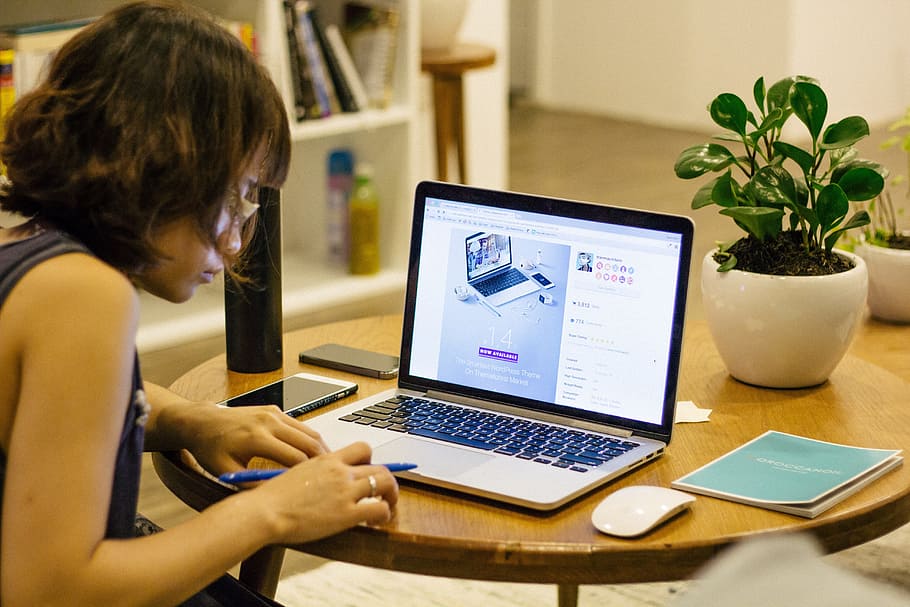In this digital age, it seems as though there’s always some type of tech at our fingertips. Computers, televisions, smartphones, and tablets are omnipresent — and they’re all getting smarter, more attuned to what their users want to see. The internet is also becoming a bigger place full of more content, from cookie recipes to the dark web.
It seems that everywhere you go, there’s some type of technology around you. And if you want to keep up with the times, you have to know your way around social media and the internet. Of course, there are good and bad sides to this equation. On one hand, it’s easier to access information than at any other time. On the other hand, the internet provides opportunities for scam artists and can even lead to tech addiction.
If nothing else, all the technology and information swirling around can get a little disorienting. If you’ve started to notice a change in your mood or behavior, it could be due to too much tech. You might be skeptical about just how much technology affects you. Keep reading to learn four ways that tech can negatively impact your mental health.
1. It Can Create Unrealistic Expectations
The problem with social media is that people only post what they want you to see. Whether you’re following your friends or celebrities, you aren’t getting a realistic view of their lives. Think about it — would you post a one-take selfie, or would you pick from the best of five?
People want to look their best and show off the better parts of their lives. Unfortunately, when that’s all you see, it can make it seem as though everyone’s life is perfect — except yours. How can you hope to compete with a constant stream of beachside vacation photos, perfect cat-eyes, and Instagram-worthy restaurant meals?
Regularly seeing these unrealistic standards can affect your mental health. You might find yourself feeling insecure, wondering why your life isn’t as idyllic as those of the friends and influencers you follow. Letting yourself go down this path can lead to depression. It’s important for your mental health that you limit how much you look at these unrealistic depictions of what life is.
2. It Can Cause Sleep Difficulties
Sometimes it can be hard to put down your device as you lay in bed waiting to fall asleep. It can be so tempting to look through social media feeds or watch one more TikTok, especially if sleep doesn’t come quickly for you. If you’re bored, your phone might be an easy distraction.
However, many experts say you shouldn’t be on your phone before bed. Not only is the blue light harmful to your eyes, but it can also affect your ability to fall — and stay — asleep. Or you might be enticed by one clickbait story after another and stay up later than normal. Even worse, you could fall prey to “doomscrolling”. Reading bad news before bed can cause actual anxiety, making it even harder to drift off.
When it comes to sleep, anything that affects it negatively can also damage your mental health. Try putting the phone down before bed and picking up a book or meditating instead.
3. It Can Result in Trouble Focusing
Have you noticed how kids’ attention spans seem to be shorter and shorter? One consequence of the rise of short videos, like those on TikTok, is an ever-decreasing attention span. And TikTok isn’t the only focus-zapping culprit. Kids have also grown up with streaming services and their almost limitless viewing options. They can click from movie to movie or episode to episode, never having to wait for their favorite show to come on.
Just as tech’s attention-limiting tendencies affect kids, they can also cause a change in adults. With a shorter attention span comes trouble focusing. You might find yourself staring off into space or becoming easily distracted when trying to work. This is a sure-fire sign you may need to lay off the tech.
Not surprisingly, an inability to focus can have negative effects on mental health. It can lead to generalized anxiety and even guilt. You might feel ashamed that you can’t finish the same amount of work as before. Replacing screen time with focus-enhancing activities like reading, exercise, or meditation can help.
4. It Can Harm Your Vision
The negative effects of blue light on your sleeping pattern have already been discussed, but what about your overall vision? While early claims about blue light’s harmful impact on retina health haven’t been proven, that doesn’t mean there’s no cause for concern. Staring at a screen for several hours a day can result in eyestrain and difficulty focusing. The smaller the screen and the more time you spend looking at it, the more pronounced these issues are likely to get.
These may seem like entirely physical problems, but poor vision can also affect your mental health. Uncorrected vision problems can result in headaches, and pain of any sort can cause a decreased mood and an increase in irritability.
If work or school requires you to spend lengthy amounts of time in front of a screen, take steps to protect your vision. In addition to getting your vision regularly checked, make a point of blinking often and take frequent eye breaks. One strategy is known as the 20-20-20 rule. For every 20-minute period, look at a point 20 feet away for 20 seconds or more.
Put Down the Smartphone
The best response to realizing that you spend too much time on tech is to do something about it. Limit your screen time — most phones have a setting to limit the time you spend on certain apps. If you’re still skeptical, why not give it a test? There’s no harm in less screen time, and you might be pleasantly surprised with the results.





